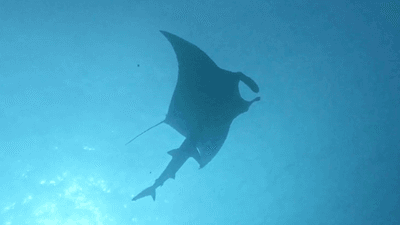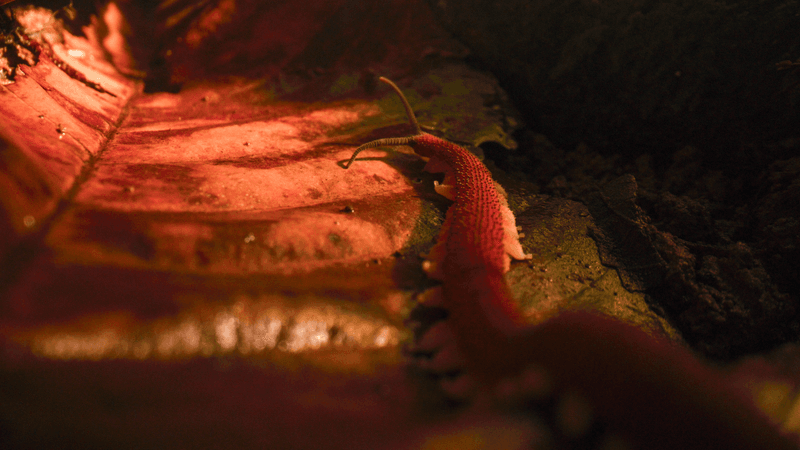Lots of animals like to keep themselves clean and free of nasty parasites and old skin cells. However, given most species' lack of hands or opposable thumbs, these itchy creatures have to find something else to use. Previously, whales have been seen with seaweed masks or even rolling around in sandy shallows, but now researchers have seen sharks using something rather surprising to scratch on: manta rays.
In the Revillagigedo Archipelago in the eastern tropical Pacific, video footage was collected at two dive sites known as The Canyon and Cabo Pearce in December 2024 and February 2025. The videos show three different times Galapagos sharks (Carcharhinus galapagensis) were recorded rubbing themselves on large manta rays (Mobula birostris).
The team reported that these incidents happened near established substrate-based cleaning stations, suggesting the sharks were taking the opportunity to use something else nearby – orcas, for example, have been known to use icebergs. The scraping was most often targeted at the underside of the mantas near the mouth and abdominal area. The team found that in all three interactions the sharks slowed down to approach but sped up just before contact.
Mantas themselves are known to frequent cleaning stations, and have a relationship with the (very cool-looking) clarion angelfish. However, no cleaner fish were seen during the manta interactions with the sharks on any of the three occasions. The manta rays had a range of responses to the contact from the sharks, from the passive to actively avoiding them.
In two of the three interactions the mantas passively tolerated the sharks' scrapping attempts and were reported not to move much. However, these attempts involved juvenile sharks. In the third interaction, which involved an adult shark, the manta ray was seen actively avoiding the shark's approaches.
“The manta exhibited strong evasive behavior following repeated scraping attempts including three backward rolls, multiple directional changes, and accelerations away from the shark, with the intensity of evasion increasing across the five scraping events,” explain the authors in their paper, which has been posted as a preprint and has not yet been peer-reviewed.
The reason for this behavior could be that sharks have been recorded preying on juvenile mantas and some older mantas carry scars from shark attacks. It is suggested that the manta in the interaction with the adult could have adjusted its behavior from prior experience or on threat level based on the larger shark's appearance.
The team suggest that the mantas could present a mobile alternative to cleaner stations with potential for less competition, especially when cleaner fish are not present. The team wonder if this lack of cleaner fish could be related to the popularity of these areas for tourism and scuba diving, interrupting the cleaning events, and whether this is affecting the sharks' behavior.
The paper, which has not been peer-reviewed, is available on the preprint server bioRxiv.





